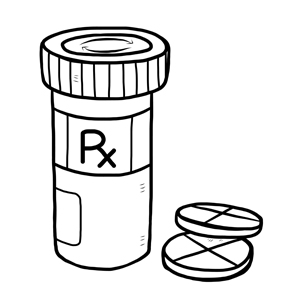Antipsychotics That Worked for A First Episode May Not Work As Well a Second Time
 In new research by Ofer Agid and colleagues, patients in their first schizophrenic episode who reached remission in response to one of two antipsychotic medications (risperidone or olanzapine) and relapsed due to medication non-adherence were re-treated with the same medication regimen that had brought about remission. Reinitiating the same treatment was not as successful in bringing about remission of the patients’ second psychotic episodes.
In new research by Ofer Agid and colleagues, patients in their first schizophrenic episode who reached remission in response to one of two antipsychotic medications (risperidone or olanzapine) and relapsed due to medication non-adherence were re-treated with the same medication regimen that had brought about remission. Reinitiating the same treatment was not as successful in bringing about remission of the patients’ second psychotic episodes.
Patients showed different types of trajectories in their first remission, from immediate to gradual improvement, and these predicted parallel trajectories of their treatment response during the second episode, though the muted response to antipsychotics existed across the board. Dopamine is the main target of antipsychotic treatments, but its role in schizophrenia is not straightforward, and Agid and colleagues stress that response and relapse are multidimensional processes.
Editor’s Note: These data are consistent with the research of J.A. Lieberman and colleagues fifteen years ago, which showed that response to antipsychotic treatment is poorer in successive episodes of psychosis. The findings are also consistent with the idea of episode sensitization in mood disorders, developed by this author (Robert Post). Episode sensitization refers to the case in which greater numbers of prior depressions or manias are associated with faster relapse and a greater degree of treatment resistance.
The data raise major doubts about the common practice of quitting medications to see if remission can be maintained without them. There are dozens of studies in patients with schizophrenia showing that continuous treatment is more effective than intermittent treatment.

